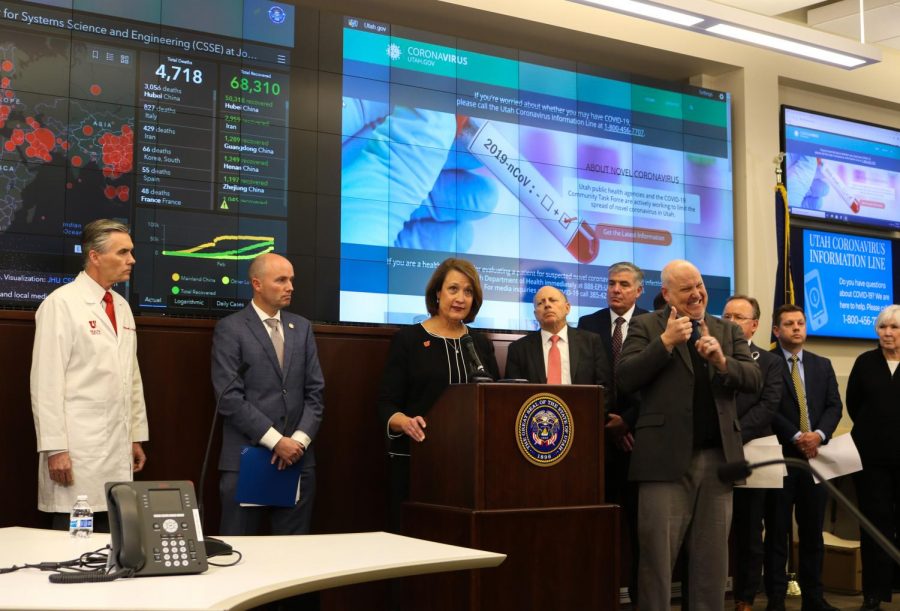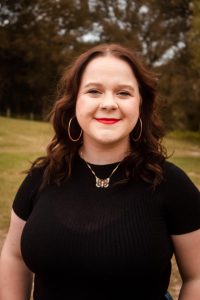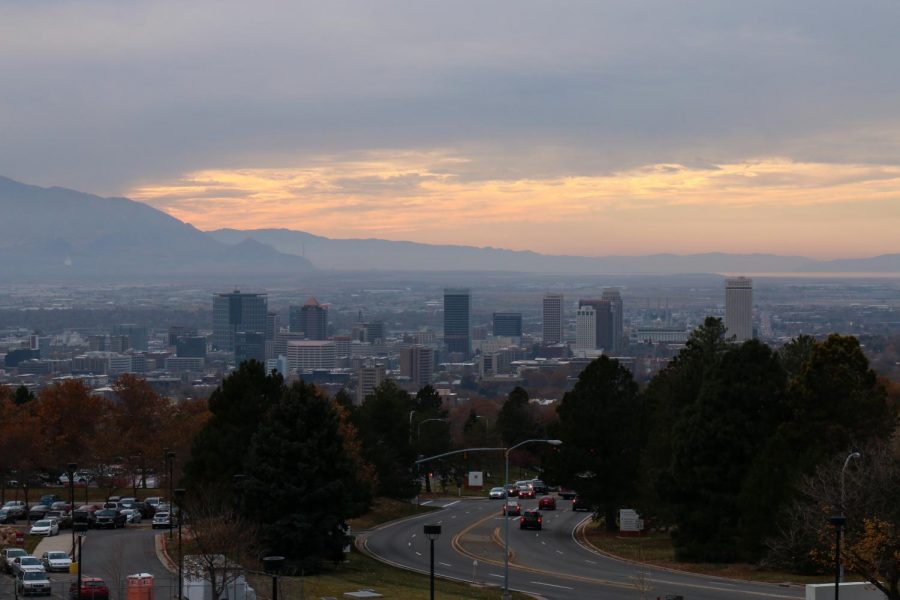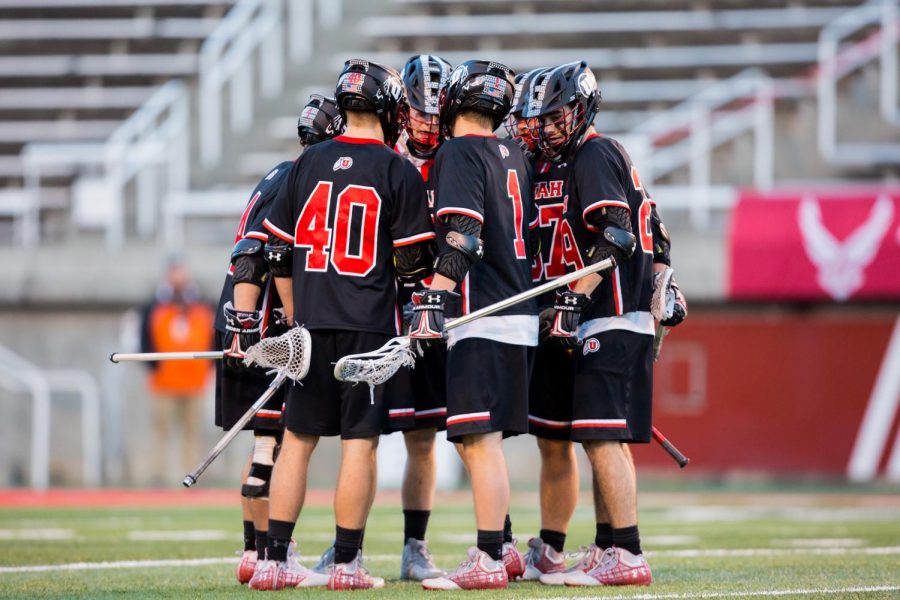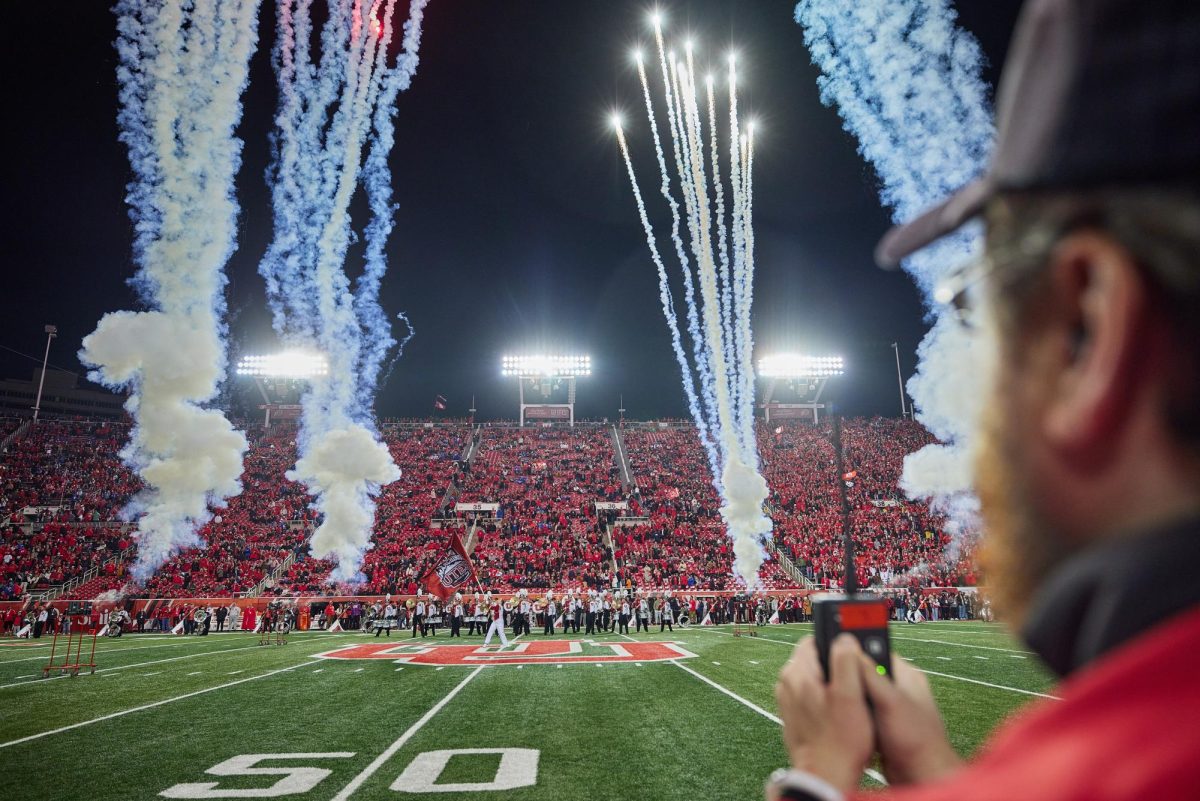State of UT Holds Press Conference in Conjunction with the U on COVID-19: Online Courses, Drive-Thru Testing and New Cases Announced
President Watkins speaks at the press conference in the Emergency Operations Center at the Capitol in Salt Lake City on March 12, 2020.
March 12, 2020
On March 12, at 12 p.m. at the Emergency Operations Center at the Capitol in Salt Lake City, the University of Utah and the Gov. Herbert came together during a press conference to talk about the latest updates in handling the spread of COVID-19.
The press conference has been postponed three times from its initial planned start time on March 11 at 5 p.m. and today, March 12, at 9 a.m. because they were still collecting information.
The Lt. Gov. Spencer Cox made the introductions at the press conference.
In attendance was Gov. Gary Herbert, the state epidemiologist Angela Dunn, Harris Simmons from the Board of Regents, U president Ruth Watkins, president Noelle Cockett from Utah State University, interim commissioner David R. Woolstenhulme, superintendent Sydnee Dickson, and Utah Jazz president Steve Starks. Speaker of the House, Brad Wilson and the Senate joined the press conference as well.
Gov. Herbert talked about the task force which was created this week. The task force has met five times in the last week to mitigate the spread of COVID-19 here in Utah in the state to protect the people’s health.
The task force, according to Herbert, has a depth and breadth of expertise and experience which is designed to help Utah citizens move forward.
Herbert said the public should take proactive measures for this. He recommended limiting mass gathering to 100 people, and for people over 60 and those who are immunocompromised to not have gatherings over 20 people. This, however, does not apply to local schools.
Herbert also instructed sick people to stay home and for everyone to work from home if possible. He also advised employers to work to make these changes possible for workers.
Watkins said the U has canceled all large events and classes will move to completely online.
State Superintendent of Public Instruction, Dickson said they do not take the possibility to close K-12 schools lightly. Dickson said closing a school is a local decision and will be supported by the state, and unless there is an imminent threat to the children and the adults who serve them, the schools would not close. For higher education the transition to go online might be easier, Dickson mentioned in the conference, than it would be for a K-12 educational system.
“It’s a different type of social and economic impact that we’re not taking lightly, we’re discussing and trying to understand all of those ramifications while at the same time again, preventing communities [from] spread[ing the virus],” Dickson said.
A three-tier system to address the situation called “Ready, Set, Go” has been developed, and, in the following weeks, more information will come on the program.
Dickson said they are mostly in the set position, working closely with schools and family to see what their possibilities of closing these schools would be.
Murray School District is in the go stage and according to KSL has announced that they will cancel schools tomorrow because they learned someone in the district had direct contact with someone infected with COVID-19.
The task force took a vote that all travel outside of the state, effective immediately, will be restricted travel related to school, not personal.
“We are taking several important steps,” President Watkins said. Beginning next week on March 18, the University of Utah will transition online.
According to Cox, drive through testing centers are “underway and expanding.” These will allow people who are possibly infected to do testing at home and then drive the test sample to the hospital or drop off stations in order to limit the number of people that they could spread the virus to. This allows them to self-quarantine if they test positive.
Several speakers emphasized that the purpose of these precautions is to slow the spread of the virus and allow healthcare systems to remain functional and not become overcrowded. They said that as long as these cases do not overtake the hospitals; they believe the state of Utah will be successful in curbing the spread.
CEO of U Health Michael Good talked about how the viruses differ from the seasonal flu, as it has often been compared to.
Good said they do not have immunity or a vaccine for the coronavirus, and the antivirals available have limited to no impact on the virus.
“If we can keep the rate of this infection below the capacity of our health systems, we’re going to do fine,” Good said.
The Utah State Legislature has also put $16 million toward the state health department. They also put $4 million into the emergency operations fund and $2 million to the local health departments.
Utah Jazz players Rudy Gobert and Donovan Mitchell also tested positive for the coronavirus and all NBA games have been suspended for the rest of the season, according to Starks.
U students battle travel restrictions on Europe
President Trump released his press conference suspending travel between the U.S. and Europe for 30 days. The restrictions do not apply to the United Kingdom.
U student Ian Harris, who is studying urban ecology, went to Amsterdam over spring with a couple of other friends when he heard about Trump’s address on March 11.
President Trump’s press announcement was confusing for Harris, because it didn’t provide any clarification on the travel ban. But, after the acting deputy secretary of the Department of Homeland Security, Ken Cuccinelli tweeted that it does not apply to American citizens or legal permanent residents and their families, Harris said he felt a sigh of relief.
“My main concern is not being able to go to classes and how that affects my studies,” Harris said, “also getting home.”
The Impact on the Community
March Madness will be played without the crowds, and the General Conference for the Church of Jesus Christ of Latter-Day Saints will be broadcasted online to an empty Conference Center.
USU canceled all non-essential university travel. They are canceling classes tomorrow, March 12, as well as Monday and Tuesday as they also transition to online courses, according to the USU president. Dixie State, Westminster, Weber State and Salt Lake Community College are also moving to online courses, along with the U.
The statewide effort to address the virus is a national concern.
At the press conference, the state displayed a COVID-19 dashboard that was last updated at 7:33 a.m. showed 127,863 total cases worldwide, 4718 total confirmed deaths, 68,310 recovered, with 1323 cases in the U.S. and 38 deaths in the U.S.
The state of Utah is in a level two partial activation for the state emergency operations center, according to the television screen hung up in the room. A level two incident requires large-scale state and federal assistance in recovery.
Three cases have been confirmed in Utah, according to the State Health Department.
I.martinez@dailyutahchronicle.com
j.mumford@dailyutahchronicle.com
n.colby@dailyutahchronicle.com
Editor’s note: Signs and symptoms of COVID-19 include fever, dry cough, tiredness and shortness of breath. These symptoms are believed to occur between two and 14 days after a person is exposed to the disease. If you have these symptoms and have recently come into contact with a person who is known to have COVID-19, or if you have recently traveled to an area with community spread of the disease, you should call your doctor. Areas with community spread of COVID-19 are believed to include China, South Korea, Italy, Iran and Seattle. If you do not have a doctor who you visit regularly, please call the Utah Coronavirus Information Line at 1-800-456-7707 or the University of Utah Health hotline at 801-587-0712. Do not go to a healthcare facility without first making arrangements to do so.


